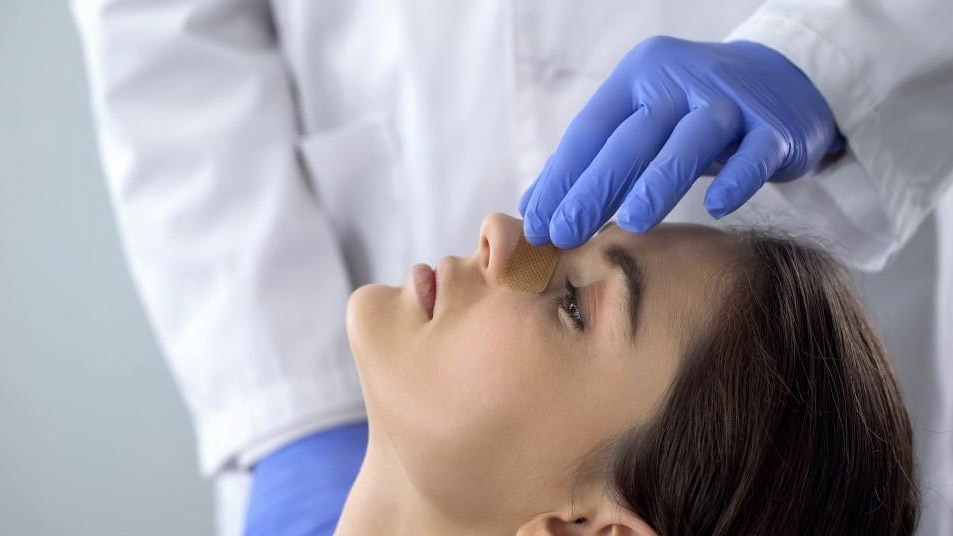
A minimally invasive surgical technique called “Endoscopic Sinus Surgery (ESS)” is used to eliminate sinus obstructions. Usually, it is done to treat nasal polyps, chronic sinusitis, and other sinus-related conditions that don't improve with medicine. An endoscope, a thin, flexible tube with a light and camera on the end, is used to do the procedure. This enables the surgeon to operate more precisely by seeing within the sinuses and nasal passageways.
The purpose of surgery is to gently remove the mucous membranes and thin, fragile bone that obstruct the sinuses' drainage routes. The word "Endoscopic" describes the use of tiny fiberoptic telescopes that make it possible to execute the whole operation via the nose, negating the need for any skin incisions. The majority of endoscopic sinus surgeries are done as outpatient procedures.
Symptoms of Sinusitis / Sinus :
Long-term infection and inflammation of the sinus and nasal linings are the hallmarks of chronic sinusitis. Numerous symptoms, such as face pressure, nasal congestion, discolored nasal discharge, and "post-nasal drip," are experienced by patients with chronic sinusitis. The patient must do sinusitis diagnosis only after the doctor has done thorough evaluation. The majority of sinusitis patients respond well to pharmaceutical treatment for infections. However, even after lengthy courses of therapy, a tiny minority of individuals have recurrence or persistence of infections. Surgery is typically beneficial for these people. The ENT Specialist will decide whether the patient is suitable for surgery only after looking over their medical history and x-ray results.
Below are few symptoms of Sinus :
- Sinusitis (persistent or chronic sinus infections)
- Nasal polyps
- Nasal obstruction or blockage
- Sinus and nasal tumors
Precautions before Endoscopic Sinus Surgery :
Your doctor may recommend preoperative medication before endoscopic sinus surgery in order to prepare your sinuses for the procedure. Oral steroids and/or antibiotics are possible treatment options. Kindly be sure you take any preoperative medicines exactly as prescribed and start them on the right day. Certain medications, such as aspirin, ibuprofen (Advil/Motrin), naproxen (Aleve), and other non-steroidal anti-inflammatory drugs (NSAIDS), as well as vitamin E (multivitamins are OK), can cause excessive bleeding and thin the blood.
It is mandatory for the smokers to give up smoking for at least three weeks before surgery and for minimum four weeks post the surgery. Smoking may prove fatal and contribute to surgical failure, poor recovery, and scarring. The primary surgeon may suggest the patient few resources to stop smoking. The patient must inform the primary care regarding their decision to go for sinus surgery. You can get medical clearance for surgery from your primary care physician. On the day of your preoperative appointment, the surgeon will perform the major required pre-operative testing; but they may even ask the patient of their previous health records.
The goals of Endoscopic Sinus Surgery include :
- Lower the frequency and intensity of sinus infections.
- Reduce the signs of sinusitis
- Optimize the sinus drainage system
- Encourage better airflow via the nose
- Enhance one's ability to smell
- Permit nasal rinses to enter the sinus cavities for cleansing and drug administration.
Benefits of Endoscopic Sinus Surgery :
For those with chronic sinusitis and other sinus-related disorders, Endoscopic Sinus Surgery can be a very helpful choice, providing treatment with little intrusion and a very short recovery period.
Primary benefits of this type of surgery:
- Lower the frequency and intensity of sinus infections.
- By clearing clogged sinuses, ESS improves drainage and lowers the risk of sinus infections. Patient gets relied from symptoms including headaches, face discomfort or pressure, and congestion of the nose.
- Using an endoscope speeds up healing by minimizing damage to the surrounding tissues. Surgeons can observe the sinuses in detail with help of the endoscopic technique, which enables more exact and comprehensive therapy.
- Compared to standard sinus surgery, patients usually have less discomfort and edema after surgery, which allows them to return to regular activities sooner. There is less chance of problems like bleeding or infection because the technique is less intrusive.
- ESS has the potential to greatly improve a patient's overall quality of life by reducing chronic symptoms.
- After surgery, a lot of individuals are able to minimize or completely stop taking prescription drugs including steroids and antibiotics.
- A deviated septum or nasal polyps are examples of anatomical defects that ESS may treat and prevent sinus symptoms.
- ESS is frequently provided as an outpatient procedure, allowing patients to return home the same day.
Procedure of Endoscopic Sinus Surgery (ESS) :
Although local anesthetic along with sedation may be utilized in some situations, general anesthesia is usually administered throughout the procedure. Without making any exterior incisions, the endoscope is introduced via the nostrils to provide a good view of the sinus chambers. To enhance sinus outflow, the surgeon uses specialized tools to remove blockages like polyps, scar tissue, or broken bones. To improve drainage and ventilation, the sinus passages are cleansed and made wider.
Postoperative Care :
Nasal irrigation, avoiding physically demanding tasks, and consulting with the surgeon are all part of post-operative care. Following FESS, the surgeon will give the patient advice on how to minimize discomfort and maintain sinus clarity. These suggestions may include the following:
Nasal saline spray: After surgery, the patient can use nasal saline mist spray every two to three hours to help the nose feel more comfortable. Saline sprays are available at every drugstore as over-the-counter treatments.
Sinus irrigation : The day following surgery, the patient will begin using the sinus rinse kits for sinus irrigation. For optimal effects, follow doctor's or nurse's irrigation recommendations and water at least twice a day as it will make the patient feel better as it helps clear out the material that surgery left in their sinuses.
People with persistent sinus issues can greatly enhance their quality of life with Endoscopic Sinus Surgery. Before confirming the surgery, the patient must consult an ENT expert about the advantages and disadvantages of this operation.
What to avoid after Endoscopic Sinus Surgery :
Nose-blowing, heavy lifting and straining :
After the surgery, for at least ten days the patient must refrain from straining, hard lifting (anything more than twenty pounds), and nose-blowing as these actions may result in bleeding. One week following surgery, this can return to 50% of the usual workout program; two weeks later, the regular schedule can resume.
Aspirin or non-steroidal anti-inflammatory (NSAIDs) medications :
Two weeks prior to surgery, avoid taking aspirin and NSAIDs like naproxen and ibuprofen, and don't use them for two weeks following.
Steroid nasal sprays :
In order to give the sinuses and nose lining time to heal following sinus surgery, the patient must stop using nasal steroid sprays for at least two weeks prior to the procedure. The expert surgeon will advise when to start taking this medication again.
If the patient has any of the following symptoms following FESS surgery, they need to see an ENT surgeon very away.
- A fever in the days after surgery that is more than 101 degrees Fahrenheit.
- A week following surgery, a persistent, clear, watery discharge from the nose.
- Abrupt changes in eyesight or swollen eyes.
- Unbearable headache or stiff neck.
- Severe diarrhea.
- Consistent, vigorous nasal bleeding that does not stop even after taking decongestant spray.
